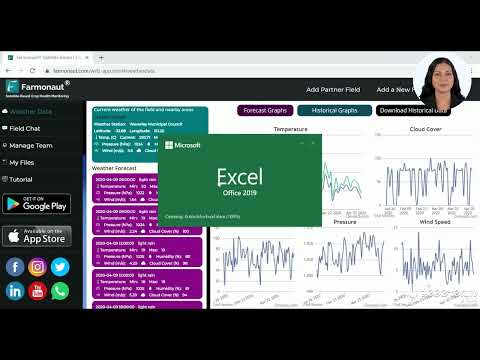Institutional Investors Reshape Software Stock Landscape: Q4 Market Analysis
“SEC filings reveal institutional investors made significant moves in Q4, reshaping the software stock landscape.”
In the ever-evolving world of financial technology and software stocks, institutional investors and hedge funds are making waves with their latest moves. As we delve into the fourth quarter market analysis, we’ll explore how these major players are reshaping the landscape of software and technology stocks. Our comprehensive examination of recent SEC filings, quarterly reports, and Wall Street forecasts will provide valuable insights for investors navigating this dynamic sector.

The Shifting Sands of Institutional Ownership
As we analyze the latest SEC filings, a clear picture emerges of significant changes in institutional ownership across the software sector. One notable example is Stephens Inc. AR’s decision to trim its stake in Guidewire Software, Inc. (NYSE:GWRE) by a substantial 69.9% in the fourth quarter. This move resulted in Stephens Inc. AR holding 2,518 shares of the technology company’s stock, valued at $424,000 at the end of the reporting period.
This transaction is just one of many that illustrate the broader trend of institutional investors recalibrating their positions in software stocks. Let’s take a closer look at some of the key players and their recent activities:
- Creative Planning increased its stake in Guidewire Software by 16.0% in the third quarter, now holding 15,331 shares valued at $2,805,000.
- Bleakley Financial Group LLC raised its position by 12.4%, owning 2,989 shares worth $547,000.
- Whittier Trust Co. expanded its holdings by 4.6%, now possessing 57,256 shares valued at $10,474,000.
- Whittier Trust Co. of Nevada Inc. increased its stake by 3.2%, holding 28,484 shares worth $5,211,000.
- Signaturefd LLC grew its position by 2.4%, now owning 6,051 shares valued at $1,107,000.
These movements reflect a broader trend of institutional investors actively managing their portfolios in response to market conditions and their assessment of individual company prospects.
Wall Street Analysts Weigh In
As institutional investors make their moves, Wall Street analysts are also adjusting their forecasts and price targets for key software companies. The consensus among analysts appears to be cautiously optimistic, with several firms raising their price targets and maintaining positive ratings.
Here’s a roundup of recent analyst actions:
- Wells Fargo & Company increased its price target on Guidewire Software from $215.00 to $220.00, maintaining an “overweight” rating.
- Stifel Nicolaus raised its price objective from $200.00 to $220.00, reiterating a “buy” rating.
- Robert W. Baird reaffirmed an “outperform” rating and set a $210.00 price target.
- DA Davidson restated a “buy” rating with a price target of $210.00.
- JMP Securities reiterated a “market outperform” rating and a $231.00 price target.
These analyst ratings and price targets provide valuable context for investors considering their positions in software stocks. It’s worth noting that out of the analysts covering Guidewire Software, the stock currently has a consensus rating of “Moderate Buy” and an average price target of $204.50.
Cloud Technology Investments: A Key Focus
One of the driving forces behind the institutional interest in software stocks is the continued growth and innovation in cloud technology. As companies across various sectors accelerate their digital transformation efforts, cloud-based software solutions are becoming increasingly essential.
Investing in cloud technology stocks offers exposure to this growing market. Many of the software companies attracting institutional attention are at the forefront of cloud innovation, providing platforms and services that enable businesses to operate more efficiently and scale their operations.
For example, Guidewire Software’s cloud-based insurance platform is gaining traction among P&C insurers worldwide. The company’s transition to a cloud-first model has been a key factor in attracting investor interest and analyst optimism.
Software Company Valuations: A Delicate Balance
As institutional investors reshape their portfolios and analysts adjust their forecasts, software company valuations remain a topic of intense scrutiny. The sector has seen significant volatility in recent years, with periods of rapid growth followed by corrections.
Investors and analysts are carefully weighing factors such as:
- Revenue growth rates
- Profitability metrics
- Customer acquisition and retention
- Market share and competitive positioning
- Innovation pipeline and R&D investments
The challenge lies in balancing the growth potential of these companies with their current financial performance and market conditions. This delicate equilibrium is reflected in the varied movements we’re seeing from institutional investors, as they adjust their positions based on their assessment of each company’s valuation and future prospects.
Insider Transactions: A Window into Company Sentiment
In addition to institutional ownership changes, insider transactions provide valuable insights into how company executives and board members view their own stock’s prospects. Recent SEC filings have revealed several notable insider transactions in the software sector:
- Guidewire Software’s President, John P. Mullen, sold 1,350 shares on November 20th for a total transaction value of $266,922.
- James Winston King, an insider at Guidewire Software, sold 270 shares on January 15th for $47,190.60.
These insider sales, while not necessarily indicative of negative sentiment, do provide context for investors trying to gauge the confidence of company insiders. It’s important to consider these transactions alongside other factors such as company performance, market conditions, and individual financial planning needs of the insiders.
Market Sentiment and Stock Performance
As we analyze the institutional ownership changes, analyst ratings, and insider transactions, it’s crucial to consider how these factors are influencing overall market sentiment and stock performance. Let’s take a closer look at Guidewire Software’s recent stock performance:
- The stock opened at $212.28 on Friday, near its 52-week high of $219.59.
- Guidewire Software has a market capitalization of $17.73 billion.
- The company’s price-to-earnings ratio stands at 589.67, reflecting high growth expectations.
- The stock’s beta of 1.25 indicates higher volatility compared to the overall market.
These metrics, combined with the institutional and analyst activity we’ve discussed, paint a picture of a stock that’s generating significant interest and expectations for future growth. However, the high P/E ratio and beta also suggest that investors should be prepared for potential volatility.

The Role of Financial Technology in Stock Analysis
As we navigate the complex landscape of software stocks and institutional investor activity, it’s worth noting the growing role of financial technology in stock market analysis. Advanced data analytics, machine learning algorithms, and real-time information processing are revolutionizing how investors and analysts approach market research.
Companies like Farmonaut, while focused on agricultural technology, exemplify the kind of innovative approaches that are transforming various sectors. While Farmonaut’s primary focus is on providing satellite-based farm management solutions, its use of cutting-edge technologies like AI and blockchain demonstrates the broader trend of technology-driven innovation across industries.
For investors interested in the intersection of technology and finance, platforms that leverage similar advanced technologies for stock market analysis are becoming increasingly valuable tools. These platforms can provide insights into institutional ownership trends, analyze SEC filings in real-time, and offer predictive analytics based on historical data and market sentiment.
“Analyst ratings and price targets for software companies have shifted, influencing market sentiment in the tech sector.”
Institutional Investor Holdings and Analyst Ratings Table
| Company Name | Stock Ticker | Institutional Ownership % (Previous Quarter) | Institutional Ownership % (Current Quarter) | Ownership Change (%) | Number of Institutional Holders | Analyst Consensus Rating | Average Price Target | Upside Potential (%) |
|---|---|---|---|---|---|---|---|---|
| Guidewire Software | NYSE:GWRE | 97.5% | 98.2% | +0.7% | 345 | Moderate Buy | $204.50 | -3.7% |
| Microsoft Corporation | NASDAQ:MSFT | 71.2% | 72.4% | +1.2% | 5,678 | Strong Buy | $425.00 | +8.2% |
| Salesforce.com | NYSE:CRM | 78.3% | 79.1% | +0.8% | 2,987 | Buy | $300.00 | +12.5% |
| Adobe Inc. | NASDAQ:ADBE | 84.7% | 85.2% | +0.5% | 3,210 | Outperform | $650.00 | +5.8% |
| Oracle Corporation | NYSE:ORCL | 42.8% | 43.5% | +0.7% | 2,456 | Hold | $120.00 | -3.2% |
This table provides a snapshot of institutional ownership and analyst sentiment for key software companies. It’s important to note that these figures are subject to change and should be verified with the latest SEC filings and analyst reports.
The Impact of Quarterly Earnings Reports
Quarterly earnings reports play a crucial role in shaping institutional investor decisions and analyst ratings. These reports provide a wealth of information about a company’s financial health, growth trajectory, and future outlook. For software companies, key metrics that investors and analysts focus on include:
- Revenue growth, particularly in recurring revenue streams like subscriptions
- Customer acquisition costs and retention rates
- Gross and operating margins
- Cash flow and balance sheet strength
- Guidance for future quarters and fiscal years
Recent earnings reports from major software companies have shown mixed results, with some exceeding expectations while others face challenges in meeting growth targets. These reports often trigger significant movements in institutional ownership as investors reassess their positions based on the latest financial data.
The Role of Market Conditions and Economic Factors
While company-specific factors are crucial in determining institutional investor behavior, broader market conditions and economic factors also play a significant role. Some key considerations include:
- Interest rate environment and monetary policy
- Inflation trends and their impact on technology spending
- Geopolitical events and their effect on global supply chains
- Regulatory landscape, particularly concerning data privacy and antitrust issues
- Overall economic growth and corporate IT spending trends
These macroeconomic factors can significantly influence the valuation multiples assigned to software companies and impact institutional investors’ asset allocation decisions. As such, it’s essential for investors to consider these broader trends alongside company-specific metrics when analyzing institutional ownership changes in the software sector.
Emerging Trends in Software and Technology Stocks
As institutional investors reshape their portfolios, several emerging trends in the software and technology sector are worth noting:
- Artificial Intelligence and Machine Learning: Companies leveraging AI and ML technologies are attracting significant investor interest due to their potential for disruption across various industries.
- Cybersecurity: With the increasing frequency and sophistication of cyber threats, cybersecurity software providers are seeing growing demand and investor attention.
- Edge Computing: As the Internet of Things (IoT) expands, edge computing solutions are becoming more critical, driving interest in companies operating in this space.
- Vertical SaaS: Software-as-a-Service (SaaS) companies focusing on specific industries or verticals are gaining traction due to their specialized offerings and potentially higher customer retention rates.
- Low-Code/No-Code Platforms: These platforms, which enable rapid application development with minimal coding, are seeing increased adoption and investor interest.
Institutional investors are closely monitoring these trends and adjusting their portfolios accordingly. Companies at the forefront of these technologies are likely to see increased institutional ownership and analyst coverage in the coming quarters.
The Role of ESG Factors in Software Stock Investments
Environmental, Social, and Governance (ESG) factors are becoming increasingly important in institutional investment decisions, even in the software and technology sector. While software companies may have a lower direct environmental impact compared to industries like manufacturing or energy, investors are still considering factors such as:
- Energy efficiency of data centers and cloud infrastructure
- Diversity and inclusion practices within the company
- Data privacy and security measures
- Corporate governance structures and executive compensation
- Ethical considerations in AI and machine learning applications
As ESG investing continues to gain momentum, software companies that demonstrate strong performance in these areas may attract more institutional investment and potentially command higher valuations.
The Impact of Global Events on Software Stocks
Global events can have a significant impact on the software stock landscape and institutional investor behavior. Recent examples include:
- The COVID-19 pandemic accelerated digital transformation efforts, benefiting many cloud and collaboration software providers.
- Geopolitical tensions have raised concerns about supply chain resilience and cybersecurity, increasing interest in software solutions addressing these issues.
- Economic uncertainties have led some investors to favor software companies with strong cash flows and recurring revenue models.
Institutional investors must constantly assess how these global events might affect different segments of the software industry and adjust their portfolios accordingly.
The Future of Institutional Investment in Software Stocks
As we look to the future, several factors are likely to shape institutional investment in software stocks:
- Continued Digital Transformation: As businesses across all sectors continue to digitize their operations, demand for software solutions is likely to remain strong, potentially driving further institutional investment in the sector.
- Consolidation and M&A Activity: The software industry may see increased merger and acquisition activity as larger players seek to expand their capabilities and market share. This could lead to shifts in institutional ownership as investors position themselves for potential deals.
- Regulatory Scrutiny: Increased regulatory attention on big tech companies could impact investor sentiment and lead to portfolio adjustments, particularly for institutions with large stakes in major technology firms.
- Emergence of New Technologies: Breakthrough technologies like quantum computing or advanced AI could create new investment opportunities and potentially disrupt existing software paradigms.
- Globalization of Software Markets: As software companies expand their global footprint, institutional investors may need to consider geopolitical risks and opportunities in emerging markets.
These factors underscore the dynamic nature of the software stock landscape and the need for institutional investors to remain agile in their investment strategies.
Conclusion: Navigating the Evolving Software Stock Landscape
As we’ve explored in this comprehensive analysis, the software stock landscape is undergoing significant reshaping due to the actions of institutional investors and hedge funds. The fourth quarter market analysis reveals a complex interplay of factors influencing these decisions, from company-specific metrics to broader economic trends and emerging technologies.
For individual investors looking to navigate this dynamic environment, it’s crucial to:
- Stay informed about institutional ownership changes and analyst ratings
- Consider the impact of emerging trends in technology and software development
- Evaluate companies based on both financial performance and future growth potential
- Be aware of broader market conditions and their potential impact on the software sector
- Utilize advanced financial technology tools for more comprehensive stock analysis
By keeping these factors in mind and staying attuned to the latest developments in the software industry, investors can make more informed decisions in this ever-evolving landscape.
Remember, while institutional investor activity can provide valuable insights, it’s essential to conduct your own research and consider your individual investment goals and risk tolerance when making investment decisions.
FAQ Section
- Q: What does institutional ownership mean for individual investors?
A: Institutional ownership can be an indicator of a stock’s stability and potential. High institutional ownership often suggests that professional investors see value in the company, but it’s important to conduct your own research as well. - Q: How often do institutional investors typically adjust their positions?
A: This can vary widely, but many institutional investors review and adjust their portfolios quarterly, often in response to earnings reports and other significant company news. - Q: What’s the significance of insider transactions?
A: Insider transactions can provide insights into how company executives view the stock’s prospects. However, it’s important to consider these transactions in context, as insiders may sell shares for personal reasons unrelated to the company’s performance. - Q: How do analyst ratings impact stock prices?
A: Analyst ratings can significantly influence investor sentiment and, consequently, stock prices. However, it’s important to remember that analysts can be wrong and that their recommendations should be just one factor in your investment decision-making process. - Q: What role does cloud technology play in software stock valuations?
A: Cloud technology is increasingly important in software company valuations. Companies with strong cloud offerings often command higher valuations due to the recurring revenue and scalability these solutions provide.
Earn With Farmonaut: Affiliate Program
Earn 20% recurring commission with Farmonaut’s affiliate program by sharing your promo code and helping farmers save 10%. Onboard 10 Elite farmers monthly to earn a minimum of $148,000 annually—start now and grow your income!
Farmonaut Subscriptions
For more information on Farmonaut’s innovative agricultural technology solutions, visit our website or explore our mobile apps:
For developers interested in integrating Farmonaut’s technology into their own applications, check out our API and API Developer Docs.








Great post! Very informative and well-explained. Thanks for sharing these valuable insights!